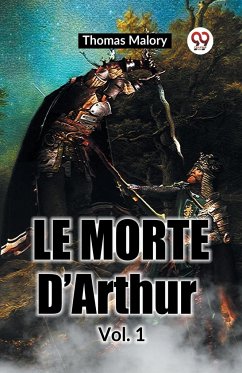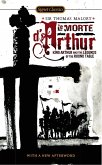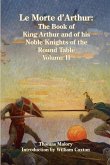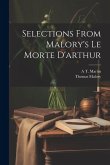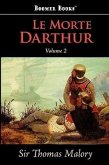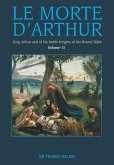Le Morte D'Arthur is a collection of stories about King Arthur and his knights, written by Sir Thomas Malory in the 15th century. The book chronicles the rise and fall of the legendary king and the knights of the Round Table, including their quests, battles, and romances. Volume 1 of the book covers the early years of King Arthur's reign, from his birth and upbringing to his establishment of the Round Table and the first adventures of his knights. The volume includes stories of Arthur's encounters with Merlin the magician, his battles against the Saxons and other enemies, and his marriage to Queen Guinevere. It also introduces many of the key figures of the Arthurian legend, including Sir Lancelot, Sir Gawain, and Sir Galahad.
Hinweis: Dieser Artikel kann nur an eine deutsche Lieferadresse ausgeliefert werden.
Hinweis: Dieser Artikel kann nur an eine deutsche Lieferadresse ausgeliefert werden.

